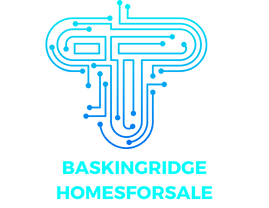What are the ethical sourcing challenges for UK fashion startups?

Today we delve into the captivating world of fashion - a world characterized by dynamism, creativity, and an unmistakable dash of glamour. However, beneath the glitz and the glamour, the fashion industry is grappling with a myriad of complex challenges, particularly in the realm of sustainability and ethical sourcing. As consumers become more eco-conscious, fashion brands, especially startups in the UK, are under scrutiny to ensure that their practices align with principles of sustainability and ethical sourcing. Let's unpack this intricate subject.
Understanding the Concept of Ethical Sourcing in the Fashion Industry
Ethical sourcing, in simplest terms, refers to the process by which materials and products are obtained in a responsible and sustainable way that respects both the environment and human rights. Within the fashion industry, ethical sourcing is a multifaceted concept, covering everything from fair trade to environmental stewardship, as well as animal welfare.
En parallèle : How can UK elder care facilities integrate IoT to improve patient care?
In recent years, the spotlight on ethical sourcing in the fashion industry has intensified. A growing number of consumers are demanding transparency, pushing brands to provide information about their supply chains and the conditions under which their products are made. This consumer-driven pressure is reshaping the fashion industry, presenting both challenges and opportunities for fashion startups in the UK.
Overcoming Environmental Challenges in Ethical Sourcing
One of the main elements of ethical sourcing is environmental sustainability. With the fashion industry being one of the largest polluters globally, the need for eco-friendly production practices cannot be overemphasized. However, implementing environmentally-friendly practices is easier said than done, and presents a significant challenge for fashion startups.
A lire aussi : What marketing strategies should UK craft beer breweries adopt to expand internationally?
One of the significant environmental challenges revolves around materials. Many of the commonly used fabrics in the fashion industry, such as polyester and nylon, are not only non-biodegradable but also require massive amounts of energy and water to produce. To mitigate the impact on the environment, brands must explore and invest in sustainable materials such as organic cotton, hemp, and recycled materials. However, these sustainable alternatives often come at a higher cost, posing a significant barrier for startups operating on a tight budget.
Additionally, the issue of waste management presents a challenge. The fashion industry is notorious for generating substantial amounts of waste - from off-cuts and unsold stock to packaging. For startups, managing this waste in a sustainable manner requires innovative solutions, such as upcycling and circular business models.
Navigating Human Rights Challenges in Ethical Sourcing
Human rights is another key pillar of ethical sourcing. Unfortunately, the fashion industry has a dark history of exploiting workers, with many big brands linked to sweatshops and child labor in their supply chains. Ethical sourcing demands respect for workers' rights and fair trade practices.
For startups, verifying and ensuring fair trade practices across the entire supply chain can be a daunting task. It is often challenging to trace the origins of materials and ensure that every stage of the production process respects labor rights. Furthermore, startups may face pushback from suppliers who are unwilling to comply with ethical sourcing standards due to cost implications or other constraints.
Responding to Market Pressures for Ethical Sourcing
The rise of the conscious consumer has brought market pressures to bear on fashion startups. Customers are voting with their wallets, favoring brands that can demonstrate a commitment to sustainability and ethical sourcing. As such, startups are not only compelled to adopt ethical sourcing but also to communicate these practices effectively to their customers.
However, entering the market with a strong ethical brand can be challenging. It requires startups to navigate a delicate balance between profitability and sustainability, often in a competitive landscape where price is a significant determinant of success. Startups also need to be wary of 'greenwashing' - a practice whereby companies mislead consumers about their environmental practices or benefits.
Adapting to Regulatory Pressures and Legal Challenges
The final piece of the ethical sourcing puzzle concerns regulatory pressures and legal challenges. Governments and industry bodies are implementing stricter regulations around ethical sourcing, creating additional compliance burdens for startups.
In the UK, for example, fashion brands must adhere to the Modern Slavery Act 2015, which requires them to disclose their efforts to eliminate forced labor from their supply chains. On top of this, there are numerous standards and certifications around fair trade and environmental sustainability that brands may choose to comply with.
Navigating these legal and regulatory requirements can be challenging, especially for startups with limited resources. However, compliance is not just about avoiding penalties - it also provides an opportunity for brands to demonstrate their commitment to ethical sourcing and build trust with their customers.
Addressing the Role of Social Media in Promoting Ethical Fashion
In the digital era, social media has emerged as a powerful tool for promoting transparency and driving consumer awareness about ethical fashion. Many fashion startups are recognizing the value of social media in reaching out to eco-conscious consumers, telling their brand stories, and showcasing their commitment to sustainable practices.
Social media platforms like Instagram, Facebook, and Pinterest are frequently used to highlight the sustainable materials used in production processes, fair trade principles, and eco-friendly packaging. Some innovative brands are even using social media to document their supply chains, offering consumers a behind-the-scenes look at their operations and demonstrating their commitment to transparency.
However, leveraging social media in this manner is not without its challenges. In the era of "fake news" and misinformation, fashion startups must work diligently to ensure their communications are accurate and authentic. This requires continuously staying abreast of the latest developments in sustainable fashion and maintaining open lines of communication with suppliers and other stakeholders.
Additionally, while social media is an effective tool for promoting ethical fashion, it also has a role to play in holding brands accountable. Consumers, influencers, and activists are increasingly using these platforms to call out brands engaged in unethical practices or those failing to live up to their sustainability claims. This has resulted in a heightened level of scrutiny and increased pressure on startups to follow through on their ethical sourcing commitments.
The Future of Ethical Sourcing in the UK Fashion Industry
Looking to the future, it's clear that ethical sourcing will continue to be a key focus for the UK fashion industry. For fashion startups, this presents an ongoing challenge but also a significant opportunity. By embracing ethical sourcing, brands can align themselves with the values of their consumers, differentiate themselves in a crowded market, and contribute to the broader movement towards sustainable fashion.
However, to truly succeed in this realm, fashion startups will need to adopt a holistic approach to ethical sourcing. This involves not just sourcing sustainable materials but also ensuring fair working conditions, reducing their carbon footprint, and promoting transparency and accountability throughout their supply chains.
In addition, startups will need to engage with their customers in meaningful ways, effectively communicating their ethical sourcing practices and responding to consumer feedback and concerns. This will require a proactive approach to social media and a commitment to ongoing education and awareness-raising.
Moreover, with the increasing regulatory pressures and legal challenges, startups should see compliance not just as a requirement but as an opportunity to demonstrate their commitment and build trust with their consumers.
In conclusion, ethical sourcing in the UK's fashion industry is not just a trend, but a necessity. With growing consumer demand for sustainable and ethically sourced products, as well as increasing regulatory requirements, fashion startups must rise to the challenge. By doing so, they can contribute to a more sustainable and ethical fashion industry while also building successful and respected brands. The road may be challenging, but the rewards - both for the businesses and for society - are substantial.
